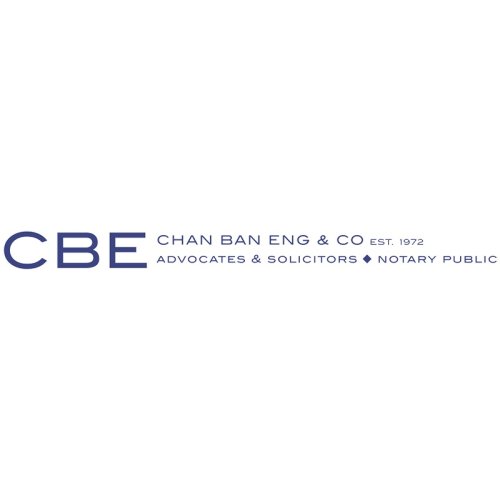Best New Business Formation Lawyers in George Town
Share your needs with us, get contacted by law firms.
Free. Takes 2 min.
List of the best lawyers in George Town, Malaysia
About New Business Formation Law in George Town, Malaysia
Setting up a new business in George Town, Malaysia, involves an intricate process with several legal requirements to fulfill. These regulations are designed to assist in maintaining appropriate conduct and sufficient transparency with stakeholders. Some necessary steps include naming the business, registering with the Companies Commission of Malaysia (SSM), obtaining relevant licenses and permits, and adhering to tax regulations. Non-compliance with these legal procedures may result in penal consequences.
Why You May Need a Lawyer
Launching a business entity entails intricate legal navigation, making it beneficial to hire a lawyer. A lawyer can guide you through the registration process, negotiate contracts, ensure your compliance with local and national laws, defend against potential lawsuits, protect your interests, and clarify tax requirements. In case of foreign ownership, understanding foreign investment law is crucial, where legal assistance becomes even more valuable.
Local Laws Overview
The Malaysian law comprises various components impacting new business formation, including The Companies Act 2016 (defines procedures for businesses), The Goods and Services Tax Act 2014 (outlines tax obligations), and local city ordinances (permits and licenses). If involving foreign elements, Foreign Investment Committee guidelines are also relevant.
Frequently Asked Questions
Q1: Which type of legal structure may be the best for my new business?
The suitable legal structure depends on individual business dynamics and may range from Sole Proprietorship, Partnership to Private Limited Company. A lawyer can provide guidance given your specific business circumstances.
Q2: What are the obligations for a director in a Malaysian Company?
A director must comply with the Companies Act 2016 involving fiduciary duties, proper account maintenance, annual return submissions, and acting in the company's best interests.
Q3: How do I protect my intellectual property rights in Malaysia?
You can protect intellectual property by registering through the Intellectual Property Corporation of Malaysia (MyIPO). You should also create confidentiality agreements, trademark your logo, patent your products, and copyright your original works.
Q4: Can foreigners own 100% of the shares in a Malaysian company?
Yes, according to the Companies Act of 2016, foreigners can own 100% of the company shares in most sectors, unless regulations specify otherwise.
Q5: What are the taxation requirements for businesses in Malaysia?
Businesses are required to pay corporate tax, sales and services tax, and possibly, import and export duties depending on the nature of the business. All businesses should be registered with the Inland Revenue Board of Malaysia (LHDN).
Additional Resources
The following governmental bodies can provide additional information: The Companies Commission of Malaysia (SSM), The Inland Revenue Board of Malaysia (LHDN), The Malaysian Investment Development Authority (MIDA), and The Intellectual Property Corporation of Malaysia (MyIPO).
Next Steps
If you require legal aid in new business formation, consult with a corporate lawyer familiar with Malaysian law. Legal aid can also be sought from law firms specialising in corporate and commercial law. Proactively plan and adhere to the regulations to avoid future legal intricacies and to ensure smooth conduct of your business operations.
Lawzana helps you find the best lawyers and law firms in George Town through a curated and pre-screened list of qualified legal professionals. Our platform offers rankings and detailed profiles of attorneys and law firms, allowing you to compare based on practice areas, including New Business Formation, experience, and client feedback.
Each profile includes a description of the firm's areas of practice, client reviews, team members and partners, year of establishment, spoken languages, office locations, contact information, social media presence, and any published articles or resources. Most firms on our platform speak English and are experienced in both local and international legal matters.
Get a quote from top-rated law firms in George Town, Malaysia — quickly, securely, and without unnecessary hassle.
Disclaimer:
The information provided on this page is for general informational purposes only and does not constitute legal advice. While we strive to ensure the accuracy and relevance of the content, legal information may change over time, and interpretations of the law can vary. You should always consult with a qualified legal professional for advice specific to your situation.
We disclaim all liability for actions taken or not taken based on the content of this page. If you believe any information is incorrect or outdated, please contact us, and we will review and update it where appropriate.
















